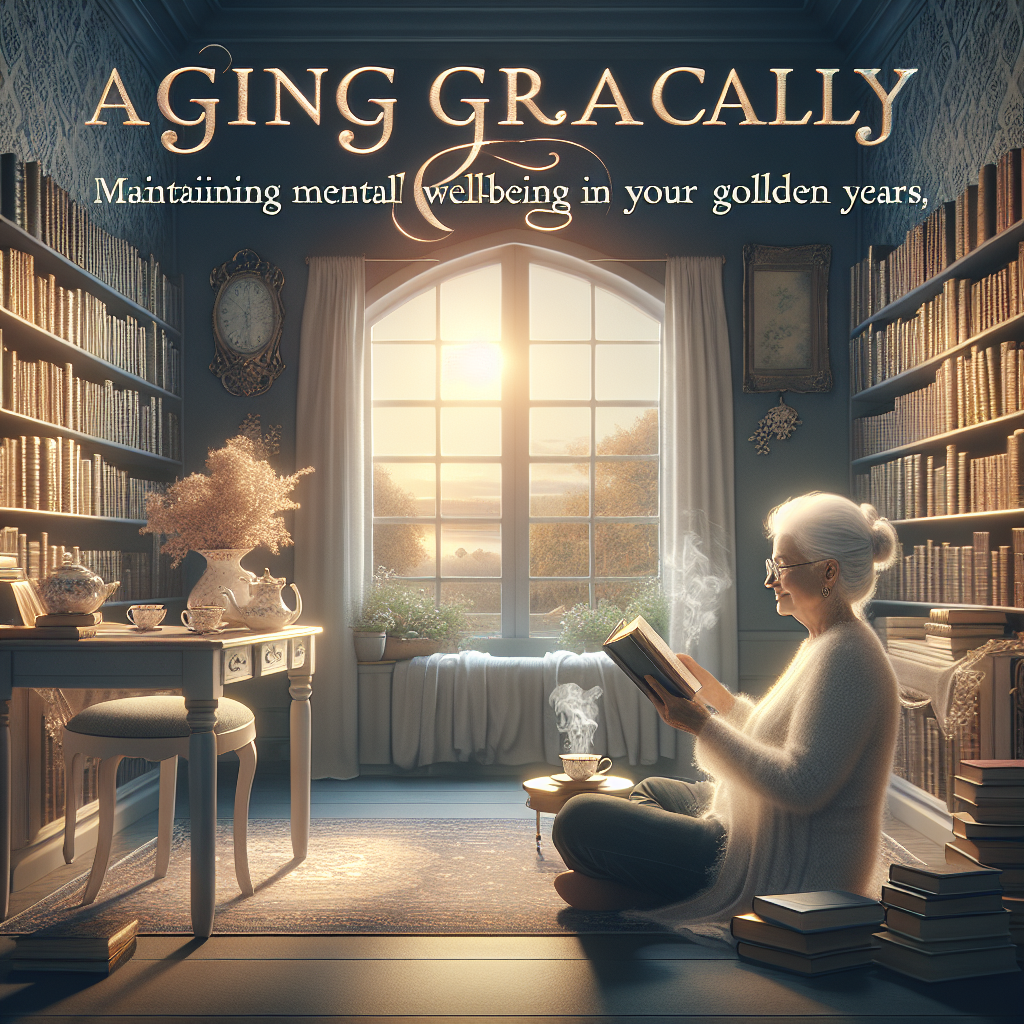As we grow older, it’s important to focus not only on our physical health, but also on our mental well-being. Aging gracefully means taking care of our minds as well as our bodies, and there are many ways to ensure that we maintain good mental health in our golden years. In this article, we will explore some tips and strategies for staying mentally sharp as we age, as well as answer some frequently asked questions about mental well-being in older adults.
One of the most important factors in maintaining mental well-being as we age is staying active and engaged. This can involve physical activity, such as regular exercise, which has been shown to have a positive impact on cognitive function. In addition, staying socially connected and engaged in meaningful activities can help to keep our minds sharp and ward off feelings of isolation and loneliness.
Another key aspect of mental well-being in older adults is maintaining a healthy diet. Eating a balanced diet rich in fruits, vegetables, whole grains, and lean proteins can provide the nutrients needed to support brain health and cognitive function. In addition, staying hydrated and avoiding excessive alcohol consumption can also have a positive impact on mental well-being.
In addition to lifestyle factors, it’s important to be proactive about maintaining mental health by practicing good self-care and seeking support when needed. This may involve taking time for yourself to relax and unwind, engaging in activities that bring you joy, and seeking out professional help if you are struggling with feelings of anxiety, depression, or other mental health issues.
There are also many activities and practices that can help to boost cognitive function and memory in older adults. Brain games, puzzles, and other mental exercises can help to keep the mind sharp and improve memory skills. Meditation and mindfulness practices can also be beneficial for reducing stress and improving overall mental well-being.
It’s important to remember that mental well-being is a multifaceted issue, and there is no one-size-fits-all approach to maintaining good mental health in your golden years. It’s important to pay attention to your own unique needs and preferences, and to seek out the support and resources that work best for you.
Frequently Asked Questions about Mental Well-Being in Older Adults:
Q: Is it normal to experience changes in mental health as we age?
A: Yes, it is normal for older adults to experience changes in mental health as they age. However, it’s important to pay attention to any persistent or severe changes in mood, behavior, or cognitive function, as these may be signs of a more serious mental health issue.
Q: What are some signs that I may need to seek help for mental health issues?
A: Some signs that you may need to seek help for mental health issues include persistent feelings of sadness or hopelessness, changes in sleep or appetite, difficulty concentrating or making decisions, and thoughts of self-harm or suicide.
Q: How can I support a loved one who is struggling with mental health issues in their golden years?
A: It’s important to listen to and validate your loved one’s feelings, encourage them to seek help from a mental health professional, and offer to assist them in finding resources and support. Additionally, staying connected and engaged with your loved one can help to reduce feelings of isolation and loneliness.
Q: Are there any resources available to help older adults maintain good mental health?
A: Yes, there are many resources available to help older adults maintain good mental health, including mental health professionals, support groups, community centers, and online resources. It’s important to reach out and utilize these resources if you are struggling with mental health issues.
In conclusion, aging gracefully involves not only taking care of our physical health, but also paying attention to our mental well-being. By staying active, engaged, and proactive about maintaining good mental health, we can ensure that our golden years are happy, healthy, and fulfilling. Remember to listen to your own needs and seek out the support and resources that work best for you.




Leave A Comment